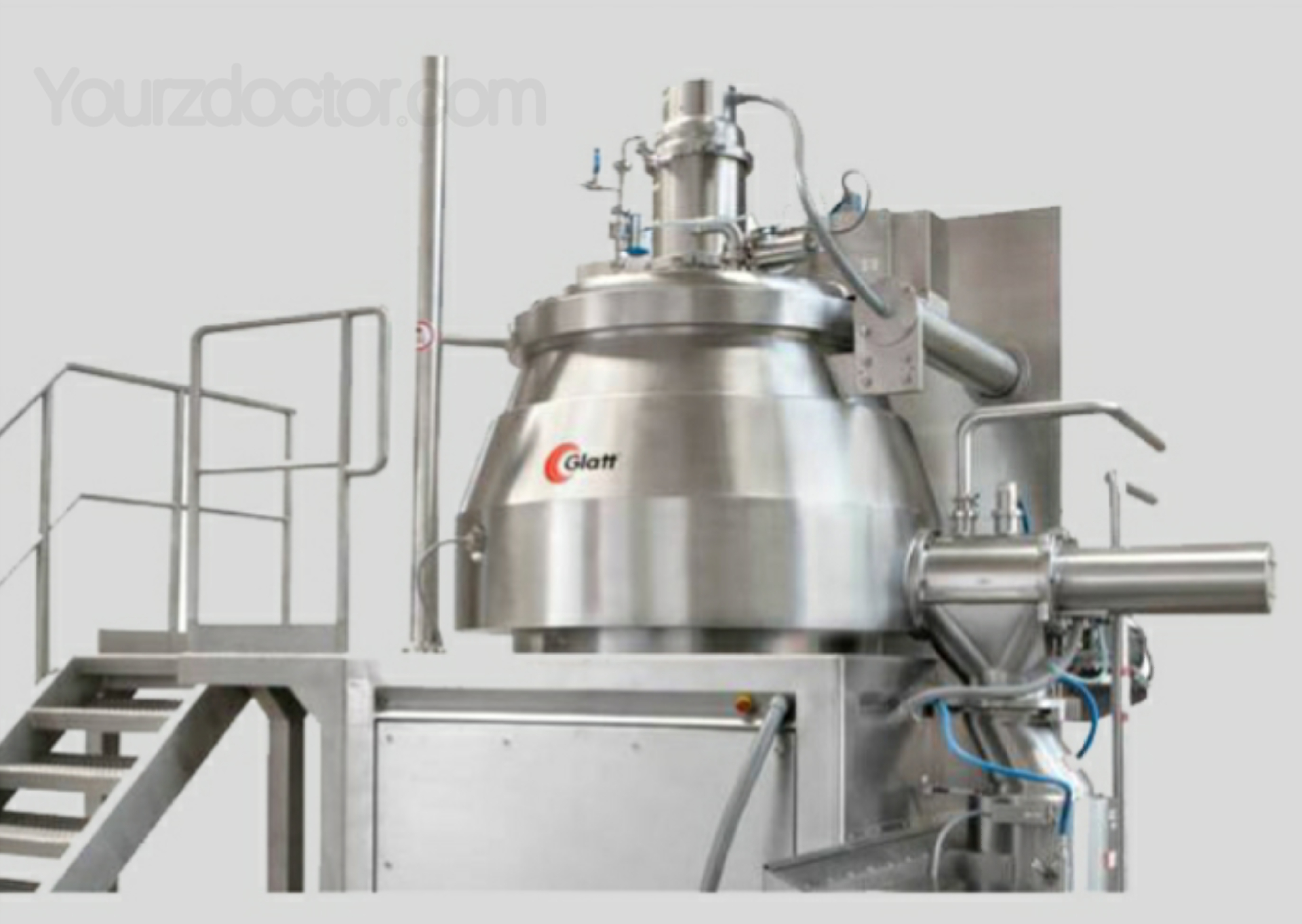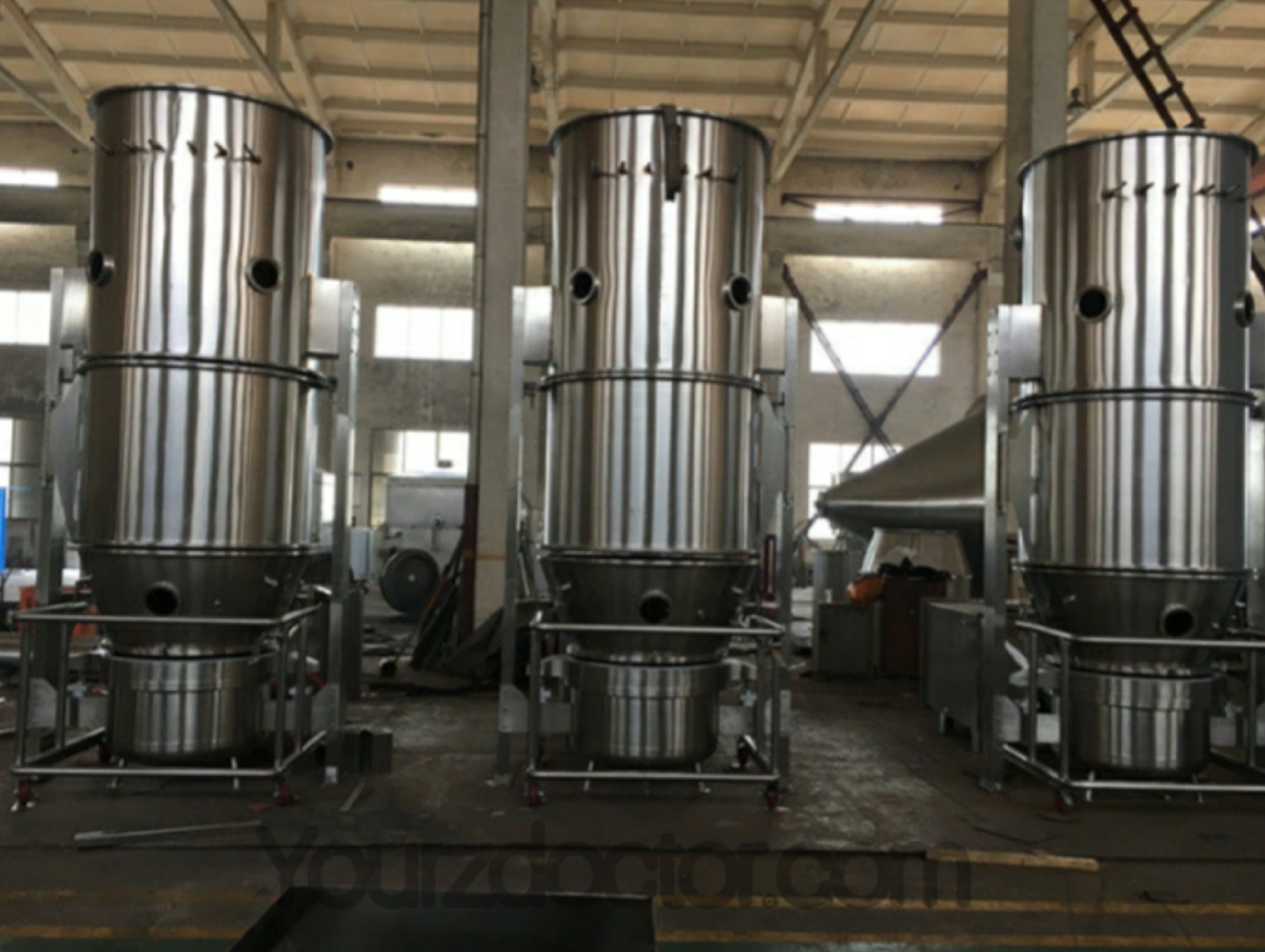Moisture Activated Dry Granulation (MADG):
It is also called
as single-pot
granulation. In this method
moisture is used in the activation of granular production but drying step is
not involved because of the use of absorbents such as MCC (microcrystalline
cellulose). This process involves 2 steps first wet agglomeration is achieved
then the material is dried out by absorbents. Small amount of water is added to
APIs excipients and binders followed by addition of MCC and potato starch as
absorbents to absorb the excessive moisture. It has many advantages like very
little granulating fluid is used, granules have excellent flowability
properties, single equipment is used i.e. high shear granulator. Larger
particles are produced to improve flow. Under and over granulation in avoided.
Less tablet capping. No equipment change is required.
Thermal Adhesion Granulation Process (TAGP):
Direct tabletting formulations are prepared through this process. It involves use of very low moisture and very low content of solvent. A mixture which contains APIs, diluents, binder and disintegrant is heated to temperature from 30°C to 130°C in a very closed system which is mixed by tumble rotation until granules are formed. The granules formed as a result has very good flow properties, which provides adequate hardness and low friability to the tablets. Dusting of powders can be avoided by this process.
High Shear Mixture Granulation (HSMG):
One step high shear
granulator called as RMG is used in this process which reduces environmental
hazards and cross contamination and produce well compact , spherical granules
in relatively shorter period of time. It involves 4 stages that is mixing,
primary granulation, secondary granulation and then drying of the granules,
under low pressure and moderate temperatures. Required parameters for this
process are chopper speed, impeller speed, rate and method of water
addition, characteristics of feed
material, loading of RMG, particle size 59. Volume of load in RMG should be 1/3rd
less then its capacity. In this technique less binders are used and cohesive
materials can also be processed. It also carry some disadvantages like
thermolabile materials cannot be processed and degradation of fragile particles
cane be occurred.
Fluidized Bed Granulation:
This technique was
invented by Wurster to coat tablets which was afterwards implemented in
granulation technology. It involves spray of binder solution to the powder bed
to get free flowing granules, using a single equipment FBG which contains air
handling units, disengagement area, spray nozzles, exhaust, blower fan and
control system. This process reduces dusting of material. It is sutable for
controlled release products. But its is a time consuming process.
Rotating (centrifugal) fluidized bead granulator/coater:
It consist of a chamber and a cylinder (air distributor) made up of stainless steel mesh. The cylinder which is horizontal it rotates around its axis inside chamber. There is also a metal filter which is stationary inside the air distributor it retains fine powder. A spray nozzle is mounted on the filter which spray the coating material over the powder bed. Pulse air jet nozzle is also placed inside the filter which clean surface of filter to avoid clogging. Air knocker is installed outside chamber to avoid powder adhesion. In rotating fluidized bed powder is introduced in the air distributor and forced to wall by centrifugal force due to rotation. Air flows radially inward through air distributor and forces on powder is balanced by air flow and centrifugal force.
Learn more
Searching Tags
Advance granulation
techniques
What is Moisture Activated Dry Granulation ?
What is MADG?
What is single pot granulation?
What is Thermal Adhesion Granulation Process ?
What is TAGP?
What is High Shear Mixture Granulation ?
What is HSMG?
What is Fluidized Bed Granulation?
What is Rotating (centrifugal) fluidized bead granulator ?
What is Rotating (centrifugal) fluidized bead coater ?








0 Comments